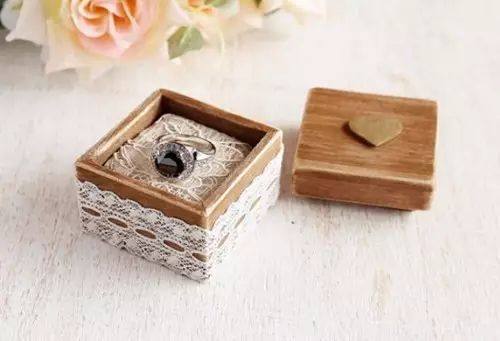You can share
- Share to Facebook
- Share to Google+
- Subscribe to our
- Share to Linkedin
- Share to Twitter

As one of the containers for jewelry packaging, ring boxes are not only a tool to protect rings, but also a key element to increase the value and beauty of rings. For various jewelry brands, customizing ring boxes can not only enhance the brand image, but also provide customers with a more personalized experience. So, what are the specific steps and precautions for customizing ring boxes?
Before starting to customize a ring box, you must first clarify the needs of the ring box. Consider the following factors:
Size: The size of the ring box needs to be determined according to the size of the ring. Generally speaking, the ring box should be able to accommodate the ring and keep the ring from being damaged.
Material: Customized ring boxes can be made of a variety of materials, such as wood, leather, metal, paper, etc. Each material has a different touch, appearance and cost, so when choosing, you should consider the brand style and customer needs.
Design style: The design style of a customized ring box can be modern, classic, retro luxurious, etc., depending on the brand positioning and the preferences of the target customer group.
Color and pattern: The color and pattern of the ring box should be consistent with the brand image and reflect uniqueness. You can add a brand logo, specific texture, or pattern design to enhance recognition.
Once the customization requirements are clear, you need to communicate with a professional designer. In this step, you need to provide some reference materials, such as:
Ring design style: Provide specific drawings or physical samples of the ring to help the designer understand the shape, size and placement of the ring.
Brand elements: Provide logo, brand color, and other visual elements to ensure that the design of the ring box is consistent with the brand image.
Functional requirements: If necessary, you can ask the designer to design specific functions, such as built-in mirrors, adjustable linings, etc.

Based on the design plan, select appropriate materials and production processes. Common ring box materials are:
Wood: Wooden ring boxes have a natural texture and high-end feel, which makes them suitable for high-end jewelry brands.
Leather: Leather ring boxes are soft and luxurious, and are commonly used in customized high-end ring boxes.
Metal: Metal ring boxes have a modern appearance and a strong texture, suitable for a modern minimalist style.
Paper: Paper ring boxes are relatively low in price, suitable for mass production, and suitable for the general consumer goods market.
In terms of production technology, different materials have different processing methods. For example, wooden ring boxes can be carved or hot-pressed, leather may need to be hand-sewn, and metal ring boxes are often cast or stamped.
After the material and process are determined, the manufacturer usually makes a sample. After the sample is made, you need to check it carefully to ensure that the design, size, color, etc. meet your expectations. If you find any problems, you can communicate with the manufacturer to make adjustments and modifications.
Once the sample is confirmed to be correct, it will enter the formal production stage. During mass production, the quality and consistency of each ring box need to be guaranteed. The production cycle and delivery time also need to be confirmed with the supplier to ensure on-time delivery.
After production is completed, quality inspection is a crucial step. Qualified ring boxes need to be packaged, usually using dust bags, color boxes, and other packaging methods to ensure that they are not damaged during transportation.
In addition to beauty and design, the most important function of the ring box is to protect the ring. When customizing, you should consider whether the material of the box lining (such as flannel, sponge, etc.) is soft and durable enough to effectively prevent the ring from being scratched, hit, and damaged.
When designing a ring box, you should pay attention to user experience. For example, whether the ring box opens and closes smoothly and whether it is easy to take out the ring. To improve user experience, you can design convenient opening and closing methods, such as magnetic clasps, spring clasps, etc.
The choice of materials directly affects the texture and price of the ring box. Different materials have different durability, touch, and appearance, so you should make choices based on customer needs and budget. In addition, the sophistication of the production process will also affeche final product.
The cost of customizing a ring box will be affected by many factors such as material, design, and craftsmanship. In the customization process, you should balance quality and cost to ensure that the final product not only meets brand requirements but also can be completed within budget.
In the process of customizing a ring box, it is key to clarify needs, fully communicate with designers, choose the right materials and craftsmanship, and pay attention to details. Through careful design and production, you can not only provide customers with high-quality ring boxes, but also enhance the professionalism and appeal of your brand. I hope this article has provided you with useful guidance on custom ring boxes and helped you make wise decisions during the customization process.